Search Images
Browse Content (p. 1072)
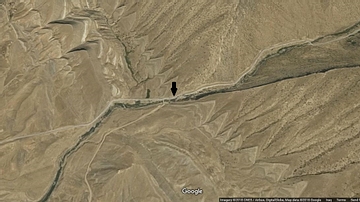
Image
Darband-i Basara
Google Earth's view of Darband-i Basara (Basara Gorge). The black arrow is where a rock relief lies. The gorge transects the anticlines of the upper part of Qaradagh Mountain Ridge. The rock relief is thought to be Lulubian and dates to the...
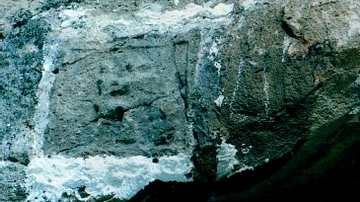
Image
Darband-i Basara Rock Relief
This rock relief lies within Darband-i Basara, which transects the upper part of Qaradagh Mountain Ridge. The rock relief is composed of two separate scenes. The main scene is within the sunken square area and a minor scene was carved on...
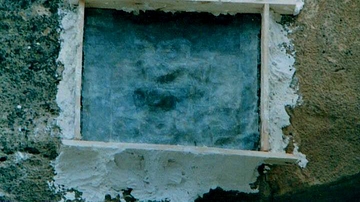
Image
The Lulubian Rock Relief of Darband-i Basara
This rock relief lies within Darband-i Basara, which transects the upper part of Qaradagh Mountain Ridge. The rock relief is composed of two separate scenes. The main scene is within the sunken square area and a minor scene was carved on...
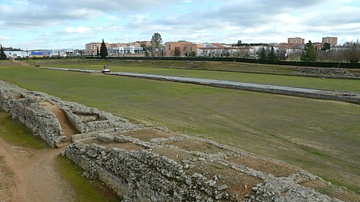
Image
Roman Circus of Mérida
The Roman circus of Augusta Emerita is a ruined Roman circus in Mérida (Spain). Inaugurated in the first quarter of the first century CE, it was used for chariot racing, and was modelled on the Circus Maximus in Rome. Measuring 440 metres...
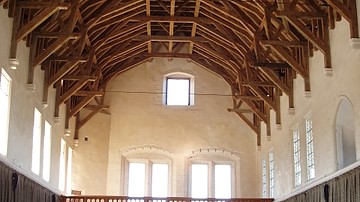
Image
Great Hall, Stirling Castle
The Great Hall of Stirling Castle, Scotland. Built c. 1500 during the reign of James IV of Scotland (r. 1488-1513). The hall was destroyed but has since been restored to its original form, including the hammer-beam ceiling.
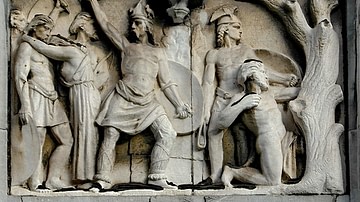
Image
Relief of Gauls Fighting Romans
A relief depicting the Gauls of Ambiorix fighting the Roman army of Julius Caesar in the mid-1st century BCE. (Palais Provincial, Liège, Belgium)
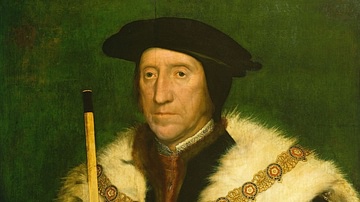
Image
Thomas Howard, Lord High Steward
A painting of Thomas Howard, 3rd Duke of Norfolk (1473-1574 CE) who served as Lord High Steward amongst many other offices of state in a long career. (Painting by Hans Holbein the Younger, Windsor Castle, England)

Image
Medieval Noble Taking His Bath
An illustration of a medieval noble taking his bath and being attended to by servants. (Codex Manesse, 14th century CE, Zurich, Switzerland)
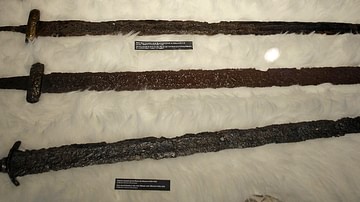
Image
Viking Age Swords
Three Viking Age swords dated to between c. 750-950 CE are shown here. They were found in the river Meuse near Den Bosch, Aalburg and Wessem, in the Netherlands. They now belong to the collections of the Rijksmuseum van Oudheden in Leiden...
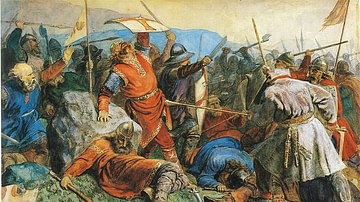
Image
The Battle of Stiklestad
Artist's rendition of the Battle of Stiklestad in 1030 CE, an alleged (but not 100% proven to be historic) battle in which King Olaf II of Norway (also known as Olaf II Haraldsson, r. 1015-1028 CE) was killed by the opposing peasant army.